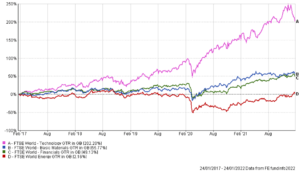Improving your financial health
https://www.ellisbates.com/wp-content/uploads/2022/04/Financial-health.jpg 560 315 Jess Easby Jess Easby https://secure.gravatar.com/avatar/0e2a278e0eef1defdd7ee9d0ae7bb398?s=96&d=mm&r=g Staying on track to achieving specific financial goals
Staying on track to achieving specific financial goals
All of your financial decisions and activities have an effect on your financial health. To help improve your financial health during this period of rising inflation rates and household costs, we look at three areas that could help keep you on track to achieving your specific financial goals.
Beat the national insurance rise
The National Insurance rise from April this year has gone ahead for workers and employers despite pressure to reverse the decision to increase this by 1.25%, which is aimed at raising £39 billion for the Treasury. From April 2023, it is set to revert back to its current rate, and a 1.25% health and social care levy will be applied to raise funds for further improvements to care services.
One way to beat the National Insurance increase is by taking advantage of salary sacrifice, which means you and your employer pay less National Insurance contributions. Some employers may decide to maximise the amount of pension contributions by adding the savings they make in lower employer National Insurance contributions (NICs) to the total pension contribution amount they pay. This is also a way to make your pension savings more tax-efficient. If you choose to take up a salary sacrifice scheme option, you and your employer will agree to reduce your salary, and your employer will then pay the difference into your pension, along with their contributions to the scheme. As you are effectively earning a lower salary, both you and your employer pay lower NICs, which could mean your take-home pay will be higher. Better still, your employer might pay part or all of their NICs saving into your pension too (although they don’t have to do this).
Review your savings
Accounts and rates
Money held in savings accounts hasn’t grown much in recent years due to historically low interest rates. But with inflation running higher, your savings are now at risk of losing value in ‘real’ terms as you will be able to buy less with your money.
In some respects, inflation can be seen as a positive. It’s a sign of strong economic recovery post-COVID, increasing salaries and higher consumer spending. But it’s bad news for your cash savings. Relying solely or overly on cash might prevent you from achieving your long-term financial goals, which may only be possible if you accept some level of investment risk.
In an environment where the cost of living is rising faster than the interest rates received on cash, there is a danger that your savings will slowly become worth less and less, leaving you in a worse position later on. If you have money in savings, it is important to keep an eye on interest rates and where your money is saved. Rates are low and you will lose money in real terms if inflation is higher than the interest rate offered on your savings account or Cash ISA.
Shift longer term savings into equities
During times of high inflation, it’s important to keep your goals in mind. For example, if your investment goals are short term, you may not need to worry much about how inflation is impacting your money. But if you’re investing for the long term, inflation can have a larger impact on your portfolio if it’s sustained – although high inflation that only lasts for a short period may end up just being a blip on your investment journey.
If you have large amounts of money sitting in cash accounts one way to beat inflation is to invest some of your money in a long-term asset that will appreciate with time, thus increasing your buying power over time. There are many ways to invest your money, but most strategies revolve around one of two categories: growth investments and income investments.
Historically, equities have offered an effective way to outperform inflation. Cyclical stocks – like financials, energy and resources companies – are especially well-suited to benefit from rising prices. These sectors typically perform better when the economy is doing well, or recovering from a crisis. Depositing funds into your investment portfolio on a regular basis (such as monthly from salary) can help you invest at different prices, averaging out the overall price at which you get into the market. Known as pound-cost averaging, this can help you smooth out any fluctuations caused by market volatility over the long term. While volatility will always exist, it can be managed and reduced by taking this approach.
Would you like advice on how to improve your financial health? Speak to us to find out how we can help.


 We are now in the midst of another volatile period in investment markets and the inevitable questions are starting to come through from clients as to what is going on. Global stock markets have undergone a correction in recent weeks, while the FTSE 100, which consists of the UK’s largest companies, is moving higher and is back to pre-pandemic levels. What is causing this divergence?
We are now in the midst of another volatile period in investment markets and the inevitable questions are starting to come through from clients as to what is going on. Global stock markets have undergone a correction in recent weeks, while the FTSE 100, which consists of the UK’s largest companies, is moving higher and is back to pre-pandemic levels. What is causing this divergence?

 Planning your future has arguably never been more important.
Planning your future has arguably never been more important.
 Make full use of your relevant tax planning opportunities
Make full use of your relevant tax planning opportunities
 Why parents should look to Christmas investment gifts instead of toys.
Why parents should look to Christmas investment gifts instead of toys.
 Are you scared of running out of money in retirement?
Are you scared of running out of money in retirement?
 Craving a better work/life balance? Wanting to spend more time with family and friends? Yearning to get on with that bucket list that you haven’t quite finished or even started?
Craving a better work/life balance? Wanting to spend more time with family and friends? Yearning to get on with that bucket list that you haven’t quite finished or even started?





 Time for pensions to contribute towards building a better world
Time for pensions to contribute towards building a better world